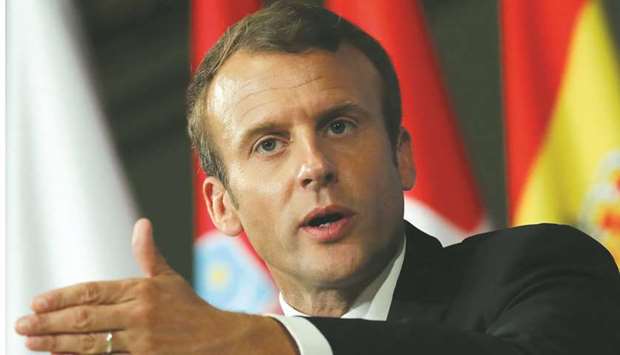The anti-terrorism law, which critics say undermines civil liberties, takes effect today, replacing the state of emergency that was imposed in November 2015, when militants killed 130 people in co-ordinated attacks across Paris.
The law gives the police greater powers to search properties, conduct electronic eavesdropping and shut down mosques suspected of preaching hatred than they had prior to the state of emergency.
Speaking to the European Court of Human Rights in Strasbourg, eastern France, Macron said “(religious) terrorism” remained the biggest security threat to France.
“Terrorism targets European society and values just as it targets government and state. We are being attacked because of what we stand for,” said Macron, who took office in May this year.
More than 240 people have been killed on French soil in Islamist-inspired attacks in almost three years.
Dozens more have been killed in similar attacks elsewhere in Europe, primarily in Britain and Belgium.
The government says the state of emergency has helped intelligence agencies to thwart more than 30 attacks.
Many of those emergency powers will now be enshrined in law, drawing criticism from human rights groups.
“France has become so addicted to the state of emergency that it is now injecting several of these abusive measures into ordinary law,” Human Rights Watch said before parliament backed the legislation.
Macron said the new legislation would be reviewed and adapted as needed two years from now.
“We’re fighting terrorism with determination and we will continue to do so within the bounds of the law and with the oversight of judges,” Macron said.

